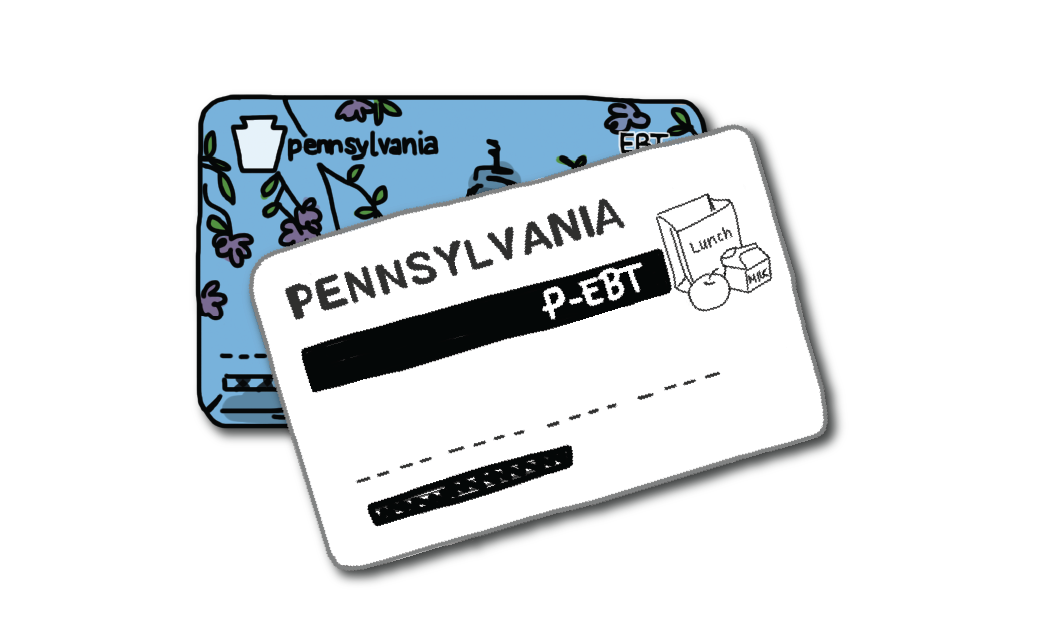
As Hunger-Free Lancaster County previously reported, the U.S. Department of Agriculture's waivers allowing all children to continue to receive free school meals have been extended through the end of summer.
This means all of Lancaster County’s school districts can continue to serve free lunches to all their students through Sept. 30 or until the start of the next school year, whichever is sooner. The program is knowns as the “Seamless Summer Option” (SSO).
'Seamless Summer Option'
Here is a summary, as of date of publication, of districts' plans regarding summer meals:
The following districts will offer summer meals to their students through the fall:
- Cocalico School District
- Manheim Township School District
- School District of Lancaster
- Columbia Borough School District
The following districts will not be providing summer meals:
- Conestoga Valley School District
- Donegal School District
- Ephrata School District
- Hempfield School District
- Manheim Central School District
The following districts have not decided or have not indicated their plans:
- Elanco School District
- Lampeter- Strasburg School District
- Pequea Valley School District
- Penn Manor School District
- Solanco School District
- Warwick School District

“I spent 10 years of my life in food service, much of it in college dining,” said Kevin Ressler, President and CEO of the United Way of Lancaster County, a partner in Hunger-Free Lancaster County and chair of its Equity, Diversity, and Inclusion Action Team. “This past year, it’s unimaginable how hard it has been on the staff not only economically but considering the social aspects and sense of purpose those jobs bring.
“But it's been even harder for Lancaster’s children, particularly children with instability at home or families unsure where their next meal comes from when the school isn’t serving it. We urge those districts which have not made final plans for summer meals to strongly consider the significance and ramifications in their choice regarding providing nutritious and universal meals to their students.”
Ressler said that Hunger-Free Lancaster County is committed to providing wholesome meals to all Lancastrians in need and that their partners will work closely with the schools to ensure families have sustained access to healthy meals while schools are closed.
 SNAP benefits
SNAP benefits
There is much good news to report about the federal Supplemental Nutrition Assistance Program.
Emergency Allotments settlement
Last month, the U.S. Department of Agriculture settled a lawsuit brought by Community Legal Services of Philadelphia that challenged the prior administration’s interpretation of the Families First Coronavirus Response Act’s requirements as it relates to so-called “Emergency Allotments.”
As a result, an additional $712 million in emergency SNAP benefits will be distributed to approximately 650,000 of the neediest Pennsylvania households. The payments will be made in May and June.
The Pennsylvania Department of Human Services will retroactively be granting additional Emergency Allotments to beneficiaries to those SNAP households which were eligible in months going back to October 2020.
In addition, the Biden Administration has authorized an additional, flat $95 Emergency Allotment beginning in May for households already receiving the maximum household size allotment.
It is important to note that Emergency Allotments from the states require both a federal and state disaster declaration. If the state’s current disaster declaration ends, that will halt the issuance of Emergency Allotments.
Ressler urged Lancastrians to be aware that the constitutional amendments that are on the May 18 Primary Election ballot could lead to the shortening or termination of the state’s disaster declaration, which would jeopardize these family nutrition benefits.
PEBT benefits
The Pennsylvania departments of Human Services and Education have launched a new round of PEBT benefits for the 2020-21 school year.
The benefits will be available for students in Kindergarten through 12th grade, as well as households with qualifying children under the age of 6. Payments will begin in late April.
PEBT, or Pandemic Electronic Benefit Transfer, helps families cover the cost of breakfasts and lunches their children would have received at school or day care for free or at reduced cost if the pandemic had not prevented in-person attendance.
Students are eligible if they live in a district that qualifies for the universal and free National School Lunch Program (NSLP) — all Lancaster County school districts qualify.
Their benefit depends on their school's mode of instruction. If classes were 100% remote in a given month, their household will receive 100% of the PEBT benefit for that month. If they participated in any form of hybrid instruction, they will receive 65% of the PEBT benefit for that month. If instruction was 100% in-person, no payment will be made.
These retroactive payments will be made over three phases, in May, June, and July, contingent on districts filing reports with the Department of Human Services.
Ressler urged administrators to provide the reports on time.
“We know that a hungry belly is not conducive to feeding hungry and eager minds. These school meal benefits make the world of difference to families living on the financial edge, exponentially more so in the uncertainty of a pandemic,” he said.
Children under age 6 are eligible if they or their families are enrolled in certain programs, such as SNAP. Payments will be made based on the instruction mode of schools in their county or a neighboring one: 100% of the benefit if at least one school is fully remote, 65% if at least one school is hybrid.
These payments will be made approximately two weeks after the K-12 ones.
It is important to note that the recently passed American Rescue Plan Act authorizes PEBT benefits to cover summer months as well. The Department of Human Services is waiting for federal guidance on how to make these payments.





